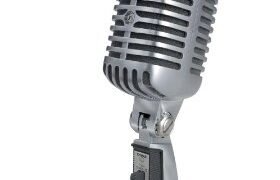
For bands or solo artists that are just starting out, recording in a music studio isn’t always a possibility. Home recording is an emerging business, but that doesn’t mean you’ll be able to produce studio-quality sound with an old microphone and a computer. If you really want to take your home recording seriously, you’ll have to have the equipment, the skills, and the drive. Are you ready to start home recording? Here are five ways to tell.
1. You know you have the chops.
If you have all of the equipment together, hooked up and ready to go, but you don’t have the chops, you won’t have a whole lot of quality material to record. If your band or solo skills aren’t very good, the best studio in the world won’t be able to produce quality music – though it may sound nice. Sometimes, putting together your first home recording is a great way to measure the level of talent you’ve achieved. This may mean you’re in for a rude awakening (“that’s me?”), but you may also surprise yourself.
2. Your microphone’s recording quality.
It’s difficult to buy a four-dollar plastic microphone and make your recording sound like it’s studio-quality. You don’t need to break the bank, but you do need a microphone that’s capable of capturing clear, wide-ranging sound without fuzziness or static getting in the way. It may be time to ditch that old live microphone and find something more suited to your home recording needs.
3. Your playback capabilities.
One of the first signs that you’re able to start home recording is how your audio sounds when played back in a pair of good headphones or on a good set of speakers. Even if you though your band nailed a particular song, if it doesn’t sound good on playback, it’s not going to get much better when you try and put it on a CD or into a digital file. Make sure you test out how your equipment plays your sound back in case you need to make adjustments.
4. The quality of your sound editing software.
Sure, you can record yourself into a computer and simply let the audio stay like it is – especially if you sound good. But what if you want to add effects, filter out different sounds, and add digital instruments? Your sound editing software will help you there.
5. Your publishing capabilities.
Ultimately, you’ll need to spread this music out – otherwise, what’s the point of recording? Whether you’re publishing to a CD or a digital file like an MP3, you can’t lose any sound quality in the publishing. Make sure you’re good to go in terms of publishing your sound.


Leave a Reply